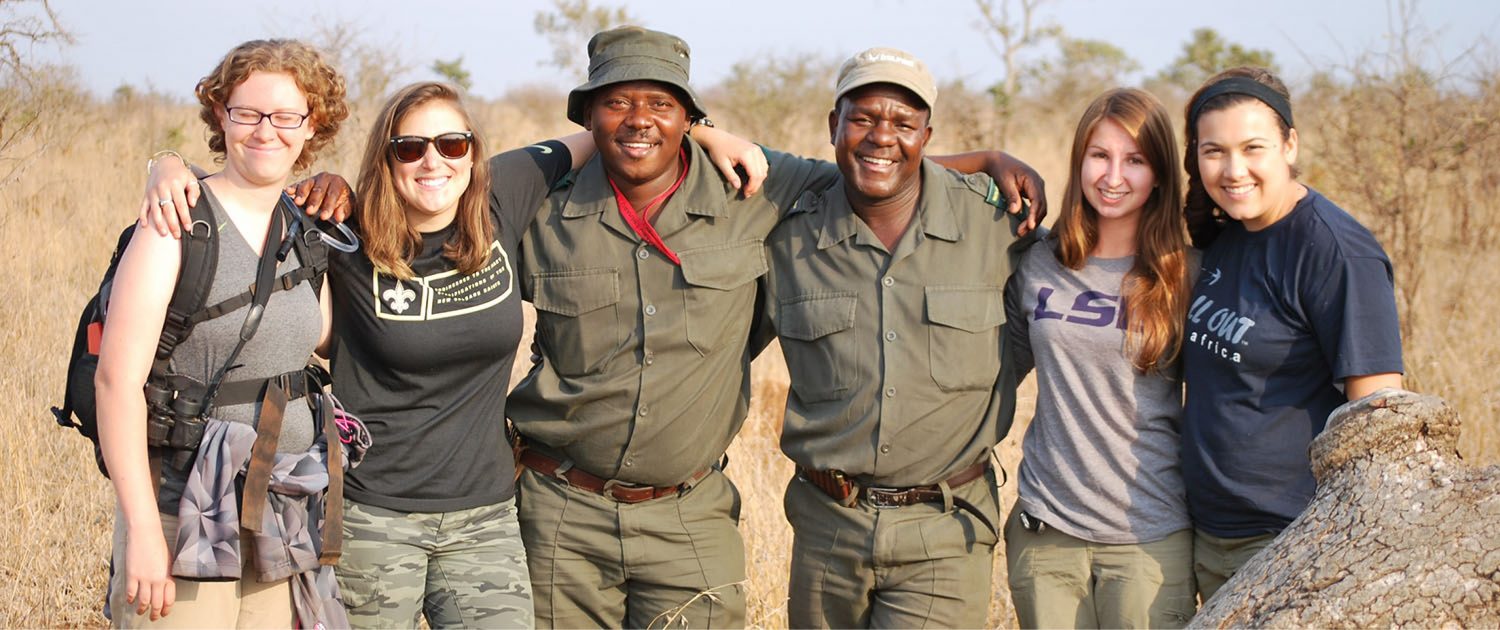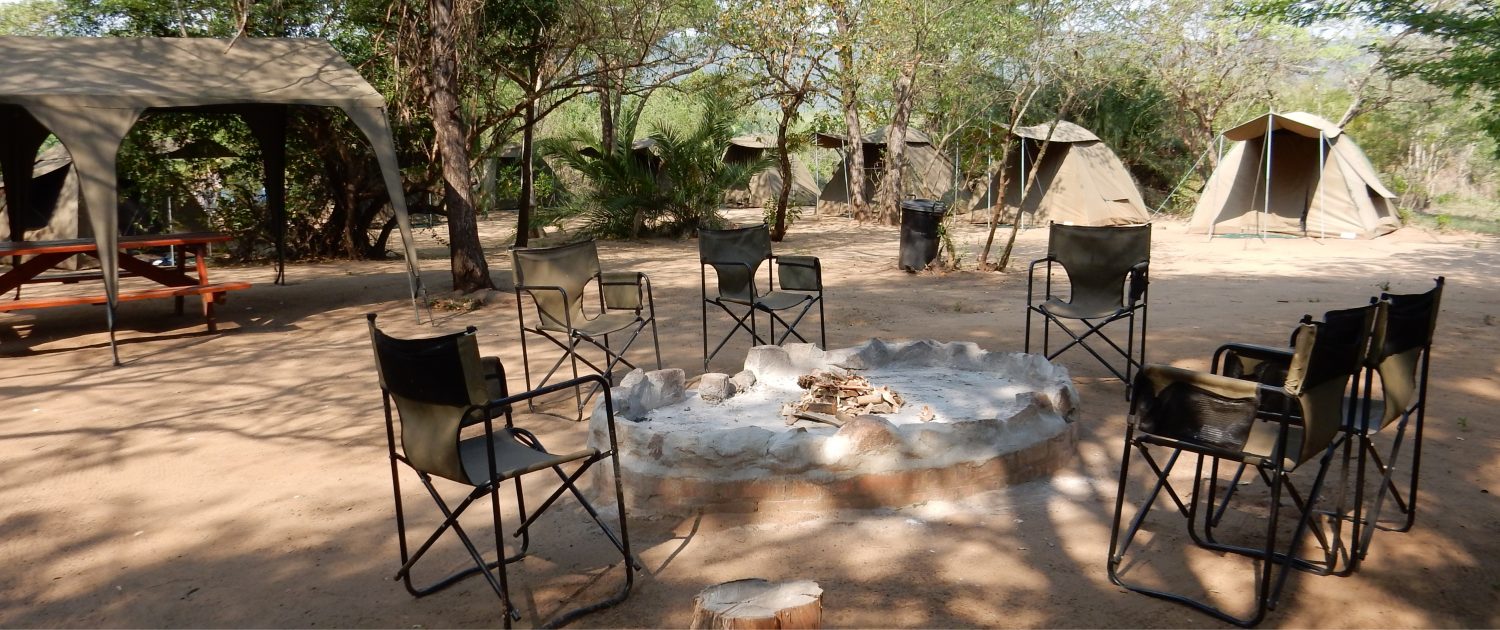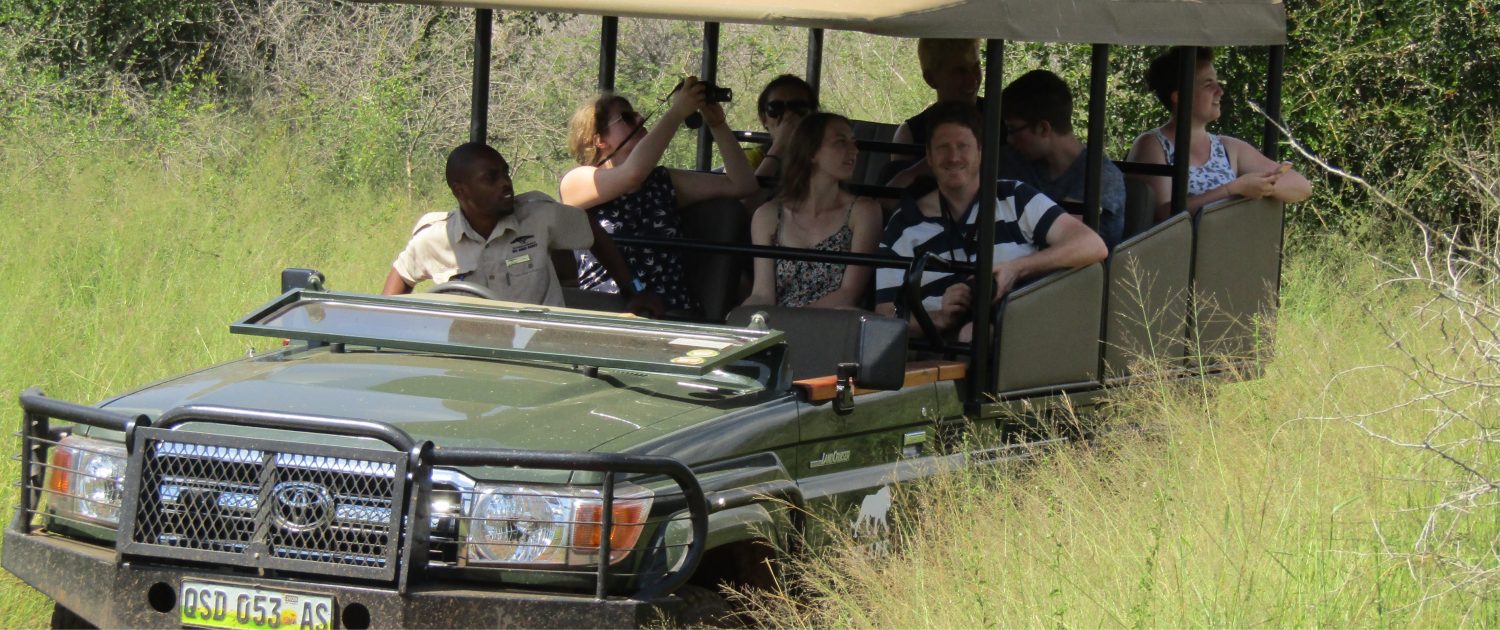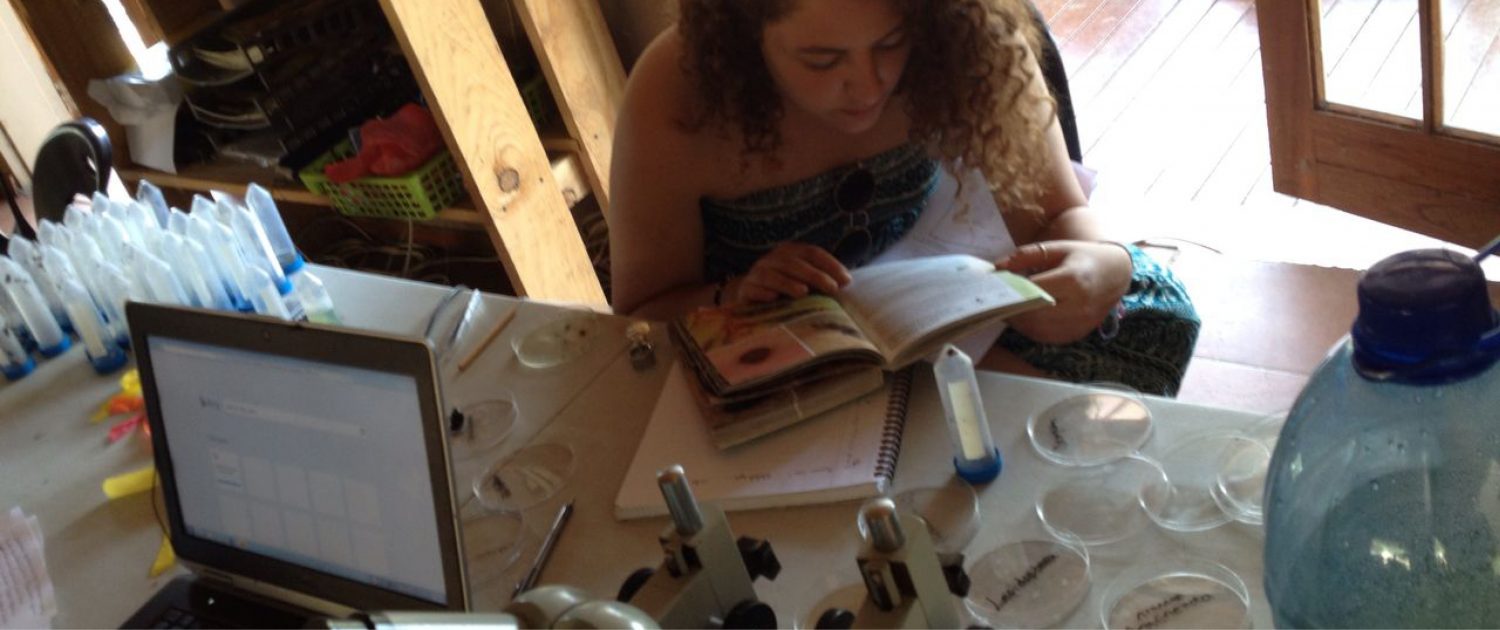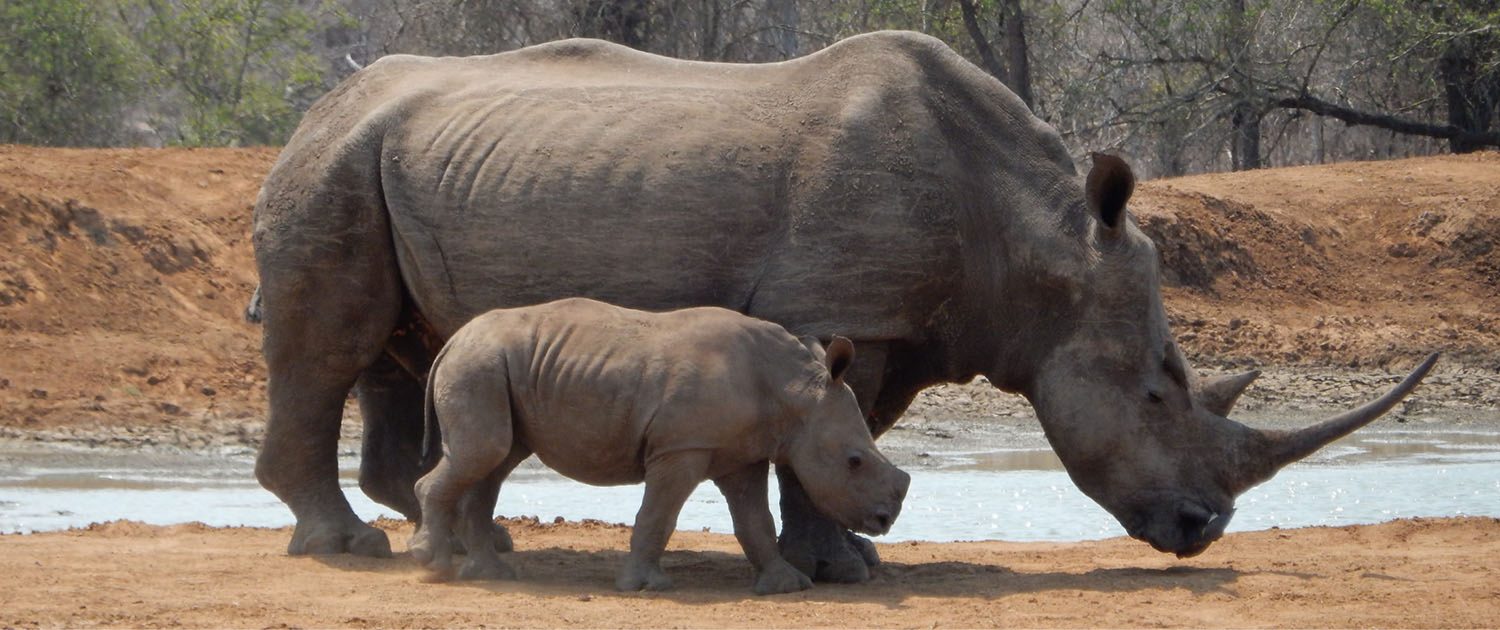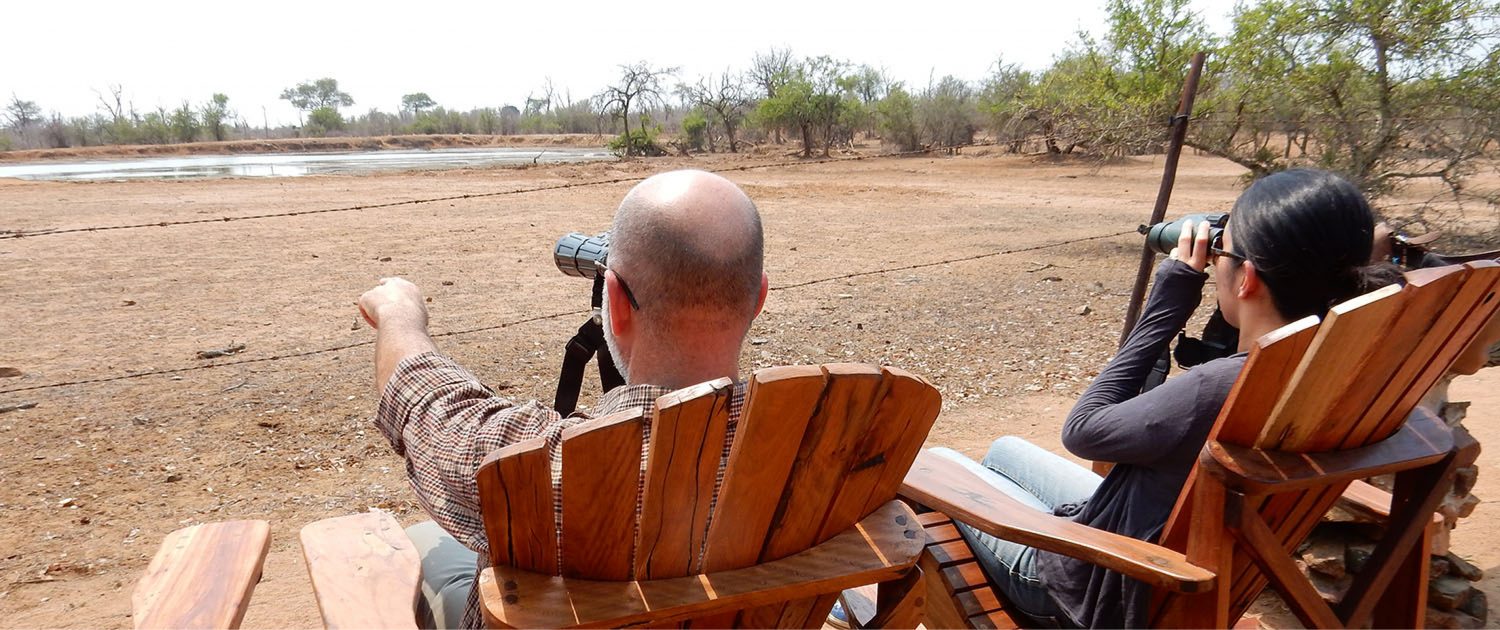“Conduct research in our well equiped centres being supported by our experienced scientists”
OUR STUDENTS HAVE SAID:
OUR STUDENTS HAVE SAID:
FAST FACTS
| Swaziland | |
| 4-12 Weeks | |
| Contact us for rates | |
| 10% | |
| Shared Tents | |
| 3 meals per day | |
| First Monday of the Month |
Flights are not included in the cost.
Conduct ecological research relevant to Savannah Ecosystems throughout southern Africa. Join us and assist with research on bats, birds, reptiles, ungulates, rodents, small predators, vegetation and a variety of other wildlife in Swaziland conservation areas. As a student on this project you will get to experience a hands-on wildlife field research program. All Out Africa runs this project and the field research is in partnership with Swaziland’s game reserves and national parks, namely Hlane Royal National Park, Mlawula Nature Reserve and Mbuluzi Game Reserve, which make up an area of over 40,000 hectares.
Although savannahs are well represented in African conservation areas, they are subjected to increasing degradation as a result of human influences through land utilization and climate change. Well known for large charismatic game such as elephants, rhinos and lions, there are a variety of smaller species that are threatened and equally important to the natural functioning of the savannah ecosystem.
Although this project involves being based in areas containing big game, your field research activities will be focused on birds, bats, ungulates, vegetation and reptiles. By better understanding these species and fauna, we can effectively manage and conserve them and the ecosystem in which they are found.
You will gain hands-on research experience that may include:
- Setting traps and handling of wildlife in a safe and humane manner
- Monitoring activities that locate and monitor various species of wildlife
- Fitting radio-transmitters to track the animals to determine their home range, distribution and movements Recording habitat and environmental variables
- Vegetation surveys
- Photo identification of species and GPS location
- Weighing, measuring, tagging and banding young birds or small mammals
Being based at our African Savannah Research Centre in Mbuluzi Game Reserve, you are sure to enjoy game drives and guided walks in a scenic setting while contributing to important conservation projects.
At our long-term research station in Swaziland, we offer field courses in savannah ecology and data collection techniques. We have been working in Swaziland for over 10 years and have developed a strong program and a stable working environment with good in-country support. We regularly encounter a wide range of animals and have global network of scientific collaborators to which our on-going data sets are provided, and we work in partnership with both University of Swaziland and University of Florida.
Overview of Program
Conduct ecological research relevant to Savannah Ecosystems throughout southern Africa. Join us and assist with research on bats, birds, reptiles, ungulates, rodents, small predators, vegetation and a variety of other wildlife in Swaziland conservation areas. As a student on this project you will get to experience a hands-on wildlife field research program. All Out Africa runs this project and the field research is in partnership with Swaziland’s game reserves and national parks, namely Hlane Royal National Park, Mlawula Nature Reserve and Mbuluzi Game Reserve, which make up an area of over 40,000 hectares.
Although savannahs are well represented in African conservation areas, they are subjected to increasing degradation as a result of human influences through land utilization and climate change. Well known for large charismatic game such as elephants, rhinos and lions, there are a variety of smaller species that are threatened and equally important to the natural functioning of the savannah ecosystem.
Although this project involves being based in areas containing big game, your field research activities will be focused on birds, bats, ungulates, vegetation and reptiles. By better understanding these species and fauna, we can effectively manage and conserve them and the ecosystem in which they are found.
You will gain hands-on research experience that may include:
- Setting traps and handling of wildlife in a safe and humane manner
- Monitoring activities that locate and monitor various species of wildlife
- Fitting radio-transmitters to track the animals to determine their home range, distribution and movements Recording habitat and environmental variables
- Vegetation surveys
- Photo identification of species and GPS location
- Weighing, measuring, tagging and banding young birds or small mammals
Being based at our African Savannah Research Centre in Mbuluzi Game Reserve, you are sure to enjoy game drives and guided walks in a scenic setting while contributing to important conservation projects.
Optional Activity
Whilst in Southern Africa why not also include a visit to the world famous Kruger National Park! Compare and contrast Savanna Ecosystems and spot the Big Five (Lion, leopard, rhino, buffalo and elephant). The Kruger trip includes accommodation (camping), meals and unlimited game drives with experienced All Out Africa guides.
Sample itinerary
| Day | Activity | Notes |
| 1 | Arrive at OR Tambo, Johannesburg | Pick up by All Out Africa and transfer to Savannah Research Centre (SRC), Swaziland |
| 2 | Savannah Reseach Centre(SRC) field program | |
| 3 | ||
| 4 | ||
| 5 | Hlane Nature Reserve visit – entrance fee and sunrise game drive | |
| 6 | ||
| 7 | Shewula Reserve visit – includes lunch and dancing display | |
| 8 | ||
| 9 | ||
| 10 | ||
| 11 | Depart SRC for Kruger | Kruger Trip |
| 12 | Kruger | Kruger |
| 13 | Kruger | Kruger |
| 14 | Depart Kruger | Transfer from Kruger to OR Tambo for departure flight |
What is included/offered within the price
- Students are accommodated in two man shared tents with mattress and pillows and faculty members get their own tent with pillow and mattress
- Well established a research station with equipment and space for presentations or studying
- Flushing toilets, hot showers, solar power and a generator in camp for comfort, and 3 meals a day are provided by excellent cooks!
- 3 permanent highly experienced staff to look after the students
- Access to 2 game drive vehicles and all transport
- Head office team in Swaziland who provide logistical support and any additional assistance which may be required
- Developing research and field techniques which support your academic requirements as well as our long-term commitment to research
- All the on the ground logistics, transport, accommodation, meals
African Savanna Publications:
Associations of avian facial flushing and skin colouration with agonistic interaction outcomes.
Bamford, A.J., Monadjem, A. & Hardy, I. 2010. Ethology 116: 1-8.
Detection rates of ungulates in the eastern Swaziland lowveld.
Collier, B., McCleery, R., Calhoun, K., Silvy, N. Roques, K.G, & Monadjem, A. 2011. South African Journal of Wildlife Research 41: 61-67.
Impact of crop cycle on movement patterns of pest rodent species between fields and houses in Africa.
Monadjem, A., Mahlaba, T.A., Dlamini, N., Eiseb, S.J., Belmain, S.R., Mulungu, L.S., Massawe, A.W., Makundi, R.H. & Taylor, P.J. 2011. Wildlife Research
Long-term changes in vegetation and bird communities in southern African savannas.
Serami, C. & Monadjem, A. 2011. Diversity & Distributions 1-11. doi: 10.1111/j.1472-4642.2011.00810.x
Molecular diet analysis of two African free-tailed bats (Molossidae) using high throughput sequencing.
Bohmann, K., Monadjem, A., Noer, C.L., Rasmussen, M., Zeale, M.R.K., Clare, E., Jones, G., Willerslev, E., Gilbert, M.T.P. 2011. Plos ONE 6(6): e21441. doi:10.1371/journal.pone.0021441.
Dietary preferences of the multimammate mouse (Mastomys natalensis, Smith 1832) across different habitats and seasons in Tanzania and Swaziland.
Mulungu, L.S., Massawe, A.W., Kennis, J., Crauwels, D., Eiseb, S., Mahlaba, T.A., Monadjem, A., Makundi, R.H., Katakweba, A.A.S., Leirs, H. & Belmain, S.R. 2011. Wildlife Research 38: 640-646.
Spatial and temporal population dynamics of rodents in three geographically different regions in Africa: implications for ecologically-based rodent management.
Massawe, A.W., Mulungu, L.S., Makundi, R.H., Dlamini, N., Eiseb, S.J., Kirsten, F., Mahlaba, T., Malebane, P., Von Maltitz, E., Monadjem, A., Taylor, P., Tutjavi, V. & Belmain, S.R. 2011. Africa Zoology 46: 393- 405.
Breeding season of Epomophorus walhbergi in the lowveld of Swaziland.
Monadjem, A. & Reside, A.E. Submitted. African Zoology
Roost use by two sympatric species of Scotophilus in a natural environment.
South African Journal of Wildlife Research
Monadjem, A., Raabe, T., Dickerson, B., Silvy, N. & McCleery, R. 2010.
A recent inventory of the bats of Mozambique with documentation of seven new species to the country
Acta Chiropterologica
Monadjem, A., Schoeman, M.C., Reside, A., Pio, D.V., Stoffberg, S., Bayliss, J., Cotterill, F.P.D., Curran, M., Kopp, M. & Taylor, P.J. 2010
Influence of rainfall on timing and success of reproduction in Marabou Storks
Ibis
Monadjem, A. & Bamford, A.J. (01-01-09)
Nesting habitat preference of the African white-backed vulture, Gyps africanus: a statistical model.
Ibis
Bamford, A.J., Monadjem, A. & Hardy, I.W. (01-01-09)
The diet of the aardwolf, Proteles cristatus at Malolotja Nature Reserve, western Swaziland
African Journal of Ecology
Matsebula, S.N., Monadjem, A., Roques, K.G. & Garcelon, D.K. (01-01-09)
Development of non-explosive based methods for mass capture of vultures
South African Journal of Wildlife Research
Bamford, A.J., Diekmann, M., Monadjem, A. & Hardy, I.C.W. (01-01-09)
Marabou Mania
Vision
Ara Monadjem, Brids of prey working group (10-10-08)
Nest distribution and conservation status of eagles, selected hawks and owls in Swaziland
Gabar
Monadjem, A. & Rasmussen, M. (01-01-08)
The influence of riparian vegetation on the distribution and abundance of bats in an African savanna
Acta Chiropterologica
Monadjem, A. & Reside, A. (01-01-08)
Dispersal of juvenile Marabou Storks Leptoptilos crumeniferus as determined by resightings
Ostrich
Monadjem, A., Bamford, A.J. & Rasmussen, M. (01-01-08)
Bats recorded from Koegelbeen Cave and selected other sites in the Northern Cape, South Africa
African Bat Conservation News 18: 2-4
Monadjem, A., Higgins, N., Smith, T. & Herrmann, E. (01-01-08)
Georgaphical Distribution: Zygaspis vandami arenicola
African Herp News 46: 24-25
Litscha, T., Koen, C. and Monadjem, A. (01-01-08)
Echolocation calls of rhinolophid and hipposiderid bats in Swaziland
South African Journal of Wildlife Research 37: 9-15
Monadjem, A., Reside, A. & Lumsden, L. (01-01-07)
Nest success and conservation status of the Blue Swallow Hirundo atrocaerulea in Swaziland
Bird Conservation International 16
Monadjem, A., Boycott, R.C., Roques, K., Gama,R. & Garcelon, D. (01-01-06)
Aspects of the breeding biology of the Chinspot Batis Batis molitor in Acacia savanna in Swaziland
Ostrich 77
Monadjem, A. (01-01-06)
Longevity and movement of the common slit-faced bat Nycteris thebaica
African Bat Conservation News 9: 7
Monadjem, A. (01-01-06)
Survival and roost-site selection in the African bat Nycteris thebaica (Chiroptera: Nycteridae) in Swaziland
Belgian Journal of Zoology 135: 103-107
Monadjem, A. (01-01-05)
A Field Assessment of Priority Protection Worthy Areas of Swaziland: Makhonjwa, Manzimnyame, Sibebe and Nyonyane.
Special report to the Government of Swaziland.
Roques, K.G., Dobson, L., Dlamini, S.D., Monadjem, A., Boycott, R., Mahlaba, T. and Raw, D. (19-06-03)
A Rapid Field Assessment of Protection Worthy Areas of Swaziland
Special report to the Government of Swaziland.
Roques, K.G. (19-06-02)
Recent Publications
Taylor, P.J. Downs, S., Monadjem, A., Eiseb, S.J. Mulungu, L.S., Massawe, A.W., Mahlaba, T.A., Kirstin, F., Von Maltitz, E., Malebane, P., Makundi, R.H., Lamb, J. & Belmain, S.R. “Experimental treatment-control studies of ecologically based rodent management in Africa: balancing conservation and pest management.”, Wildlife Research 39: 51-61, 2012.
Lehmkuhl Noer, C., Dabelsteen, T., Bohmann, K. & Monadjem, A.
“Molossid bats in an African agro-ecosystem select sugar cane fields as foraging habitat.”, African Zoology 47: 1-11, 2012.
Morgan, T.C., McCleery, R.A., Moulton, M.P. & Monadjem, A.
“Are Southern Black Flycatchers (Melaenornis pammelaina) associated
with Fork-tailed Drongos (Dicrurus adsimilis)?”, Ostrich 83: 109-111, 2012
Monadjem, A., Botha, A. & Murn, C. “Survival of the African white-backed vulture Gyps africanus in north-eastern South Africa.”,African Journal of Ecology 51: 87-93, 2012.
Taylor, P.J., Stoffberg, S., Monadjem, A., Schoeman, M.C., Bayliss, J. & Cotterill, F.P.D. “Four new bat species (Rhinolophus hildebrandtii complex) reflect Plio-Pleistocene divergence ofdwarfs and giants across an Afromontane Archipelago.”, Plos ONE. 7(9): e41744. doi:10.1371/journal.pone.0041744, 2012.
Monadjem, A., Kane, A., Botha, A., Dalton, D. & Kotze, A. “Survival and population dynamics of the marabou stork in an isolated population, Swaziland.” Plos ONE. 7(9): e46434.
doi:10.1371/journal.pone.0046434, 2012.
Monadjem, A., Virani, M.R., Jackson, C. & Reside, A. “Rapid decline and shift in the future distribution predicted for the endangered Sokoke Scops Owl Otus ireneae due to climate change.”, Bird Conservation International DOI: 10.1017/S0959270912000330, 2012.
Monadjem, A., Richards, L., Taylor, P.J. & Stoffberg, S. “High diversity of pipistrelloid bats (Vespertilionidae: Hypsugo, Neoromica and Pipistrellus) in a West African rainforest with the
description of a new species.”, Zoological Journal of the Linnean Society 167: 191-207, 2013.
Mdangia, M., Mulungu, L.S., Massawe, A.W., Eiseb, S., Tutjavic, V., Kirsten, F., Mahlaba, T., Malebane, P., Van Maltitz, E.,Monadjem, A., Dlamini, N., Makundi, R.H. & Belmain, S.R. “Assessment of rodent damage to stored maize (Zea mays L.) on smallholder farms in Tanzania.”, International Journal of Pest Management DOI:10.1080/09670874.2012.744495, 2013.
Monadjem, A. & Reside, A.E. “Breeding season of Epomophorus walhbergi in the lowveld of Swaziland.”, African Zoology 47: 321-325, 2013.
Long, A., Bailey, K., Greene, D.U., Tye, C., Parr, C., Lepage, H.K., Gielow, K.H., Monadjem, A. & McCleery, R.A. “Multi-scale habitat selection of the African Pygmy Mouse (Mus minutoides).”, African Journal of Ecology (early view), 2012.
Taylor, P.J., Monadjem, A., & Steyn, J. “Seasonal patterns of habitat use by insectivorous bats in a subtropical African agro-ecosystem dominated by macadamia orchards.”, African Journal of Ecology (early view), 2013.
Schoeman, M.C., Cotterill, F.P.D. (Woody), Taylor, P., & Monadjem, A. “Using potential distributions to explore environmental correlates of bat species richness in southern Africa: effects of model selection and taxonomy.”, Current Zoology , In Press.
Monadjem, A., McCleery, R.A. & Collier, B.A. “Activity and movement patterns of the tortoise Stigmochelys pardalis in a subtropical savanna.”, Journal of Herpetology, In press.
Denys, C., Kadjo, B., Missoup, A.D., Monadjem, A., & Aniskine, V. “New records of bats (Chiroptera) and karyotypes fromGuinean Mount Nimba (West Africa).”, Italian Journal of Zoology, In press.
Taylor, P.J., Sowler, S., Schoeman, M.C., & Monadjem, A. “Diversity of bats in the Soutpansberg and Blouberg Mountains of northern South Africa: complementarity of acoustic and non-acoustic survey methods.”, South African Journal of Wildlife Research, In
press.
Book: Monadjem, A., Taylor, P., Cotterill, F.P.D. & Schoeman, M.C. 2010. Bats of
Southern and Central Africa: A Biogeographic and Taxonomic Synthesis.
University of the Witwatersrand, Johannesburg.
What makes All Out Africa a great partner for your school or organisation?
We believe in creating a true partnership between our two organisations, and will provide prompt support and assistance to allow you to facilitate bookings and respond your needs. Our customer service is exceptional and responsive, and we can tailor make a package to suit your group, budget and learning outcomes.
- We have proven experience hosting thousands of students and volunteers across our four destinations on multiple projects spanning community development, childcare and conservation
- Worthwhile & authentic projects – Your students will create a real impact and gain a genuine sense of contribution through working on long-term sustainable projects and research activities that are important for conservation and development.
- The humanitarian and conservation elements of our projects are implemented alongside our registered NGO – All Out Africa Foundation. Our projects have received international recognition for their good work including 60 scientific publications
- We offer an unrivalled volunteer and intern experiences – our unique combination of project locations offer a mix of safety, cultural immersion and environmental splendour
- All Out Africa is a family of dedicated, passionate people. Our staff are qualified, highly skilled and experienced to ensure every single client gets the most out of their time with us
- Your clients will be surrounded by All Out Africa staff throughout all elements of the experience as we own and manage the volunteer, tour and accommodation operations
- Our adventure tours division offers in-house tours combined with volunteer and intern experiences; giving us totally unique products to offer and the opportunity for clients to both give back and have a holiday experience
- Our accommodation division offers in-house lodge accommodation that has won numerous awards; they are safe, comfortable and clean, with great amenities and provide nutritious meals to your clients
- We are flexible and can offer customised experiences and group arrangements to respond to client requests
- We offer a loyal long-term partnership – we are a personal organisation, owner-run and highly responsive but with the geographical reach to offer great variety and the experience from our 12 years of operation to ensure sustainability and success
Our fees includes the following:
- Safe comfortable accommodation & 3 meals a day for the duration of the experience
- Airport collection upon arrival by All Out Africa staff and airport transfer for departure
- Comprehensive orientation upon arrival including health and safety briefing
- A local tour to understand local culture and engage with the community
- 24 hour support , 7days a week from All Out Africa staff throughout the experience
- Training on tasks and activities and daily project guidance from our experienced & well qualified project co-ordinators
- Materials and equipment required for volunteer/intern placements
- Communications, transport and other operational costs for the projects and in case of emergency
For more information, download our brochure Become a partner brochure!
Other Projects you may be interested in
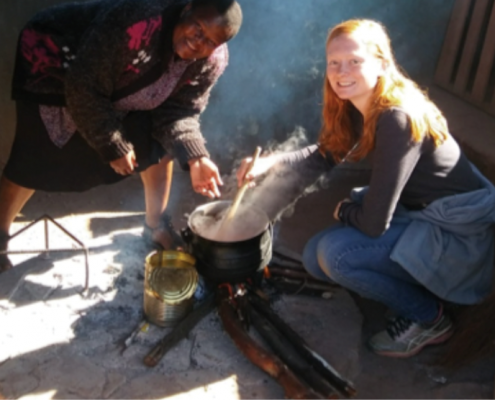 https://alloutafrica.com/wp-content/uploads/2018/06/chelsea.png
556
833
aoa
/wp-content/uploads/2015/09/All-Out-logo_transparent_2.png
aoa2018-06-28 15:19:552018-06-28 15:30:42Lessons Learned – Nutrition Intern
https://alloutafrica.com/wp-content/uploads/2018/06/chelsea.png
556
833
aoa
/wp-content/uploads/2015/09/All-Out-logo_transparent_2.png
aoa2018-06-28 15:19:552018-06-28 15:30:42Lessons Learned – Nutrition Intern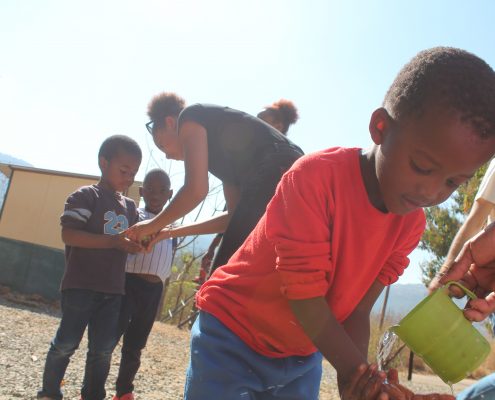 https://alloutafrica.com/wp-content/uploads/2017/08/IMG_1855.jpg
2848
4272
aoa
/wp-content/uploads/2015/09/All-Out-logo_transparent_2.png
aoa2017-08-29 12:47:582018-03-12 18:13:36Dear Nutrition Intern….
https://alloutafrica.com/wp-content/uploads/2017/08/IMG_1855.jpg
2848
4272
aoa
/wp-content/uploads/2015/09/All-Out-logo_transparent_2.png
aoa2017-08-29 12:47:582018-03-12 18:13:36Dear Nutrition Intern….
